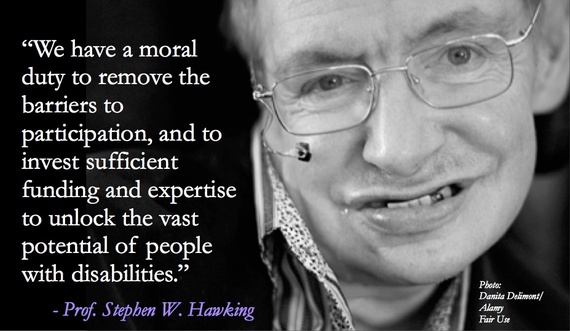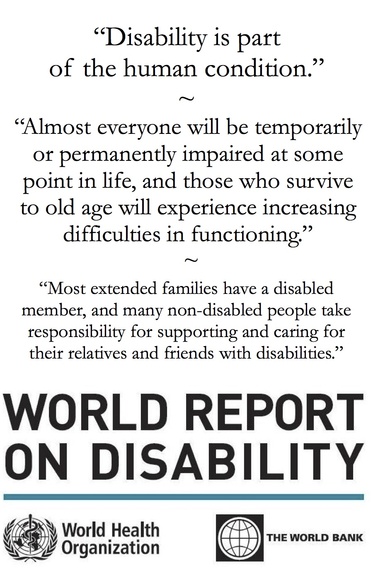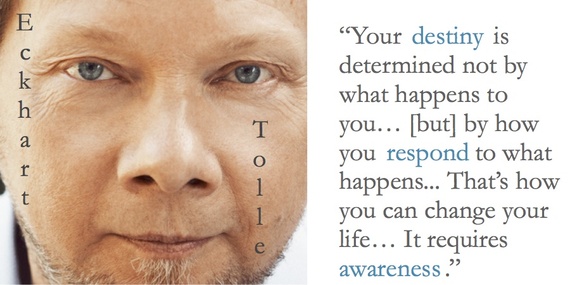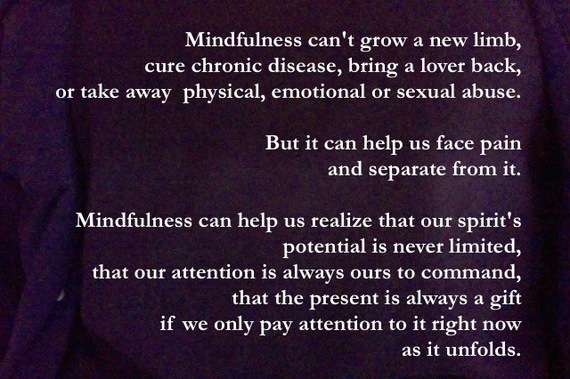Dear Google,
This year you've pledged $20 million through Google.org to help "create more access and opportunity for people with disabilities." Thank you for this generous act.
By timing your philanthropy with the 25th anniversary of the Americans with Disabilities Act, you bring attention to landmark human rights legislation.
I also appreciate your open call for "unconventional solutions" that will help design "a world that works for everyone."
But in spite of your good intentions, I fear you will not address the biggest disability currently impacting the world.
I'll explain in a moment. First, a little background:
In a pioneering global report on disabilities (2011), the World Health Organization concluded:
- More than 1 billion people live with some form of disability. That's about 15 percent of the world population.
- People with disabiilties are "one of the most marginalized groups in the world" with "poorer health outcomes, lower education achievements, less economic participation and higher rates of poverty than people without disabilities."
Upon hearing the scope of the world problem, many of us who consider ourselves to be disability-free might think - in our secret heart of hearts -"This must be terrible for them." (Subtext: "At least I'm okay.")
Well, if you think you're in the clear, you might want to think again. I found the following quote to be the most thought-provoking passage in the WHO report. It is a stark reminder that when we look at disability, it's not a matter of who, but when.
Which leads me to the main point of my post.
What's the biggest disability that no one talks about? It's actually not the loss of function that often comes with old age. It's something even more prevalent.
Spiritual impairment.
By spiritual, I don't refer to any particular religion or faith, but rather the innate human ability to use our attention to integrate heart, mind, body and intuition, and in so doing, to find well-being and equanimity.
Our spiritual integrity gives us the opportunity to transcend difficulties through awareness. But we lose touch with this natural radar/resilience because society teaches us that we are broken not whole. So we learn to define ourselves by what we think we can't do.
This is the source of what I call spiritual impairment.
At this point, you might be feeling suspicious of the whole concept. Be honest. Spiritual impairment? What's that? Exactly how does it manifest?
Well, spiritual impairment translates to these four things for starters:
- Lack of awareness of self and the world around us
- Lack of emotional intelligence
- Self-defeating thoughts and behaviors that disable our natural resourcefulness, and
- Acquiescence to suffering as an inescapable fact of life
This disability invites us to discount the power of our own free will. It shows itself in the limiting, negative mental script we write and re-write for ourselves - a script that disconnects and isolates us, bars contentment, nullifies compassion and tells us we aren't good enough and it doesn't matter anyway because ... (everyone gets to fill in the blank here with their own personal rationalization for why the world is F****d and we can't do anything about it).
Tell the truth - how often do you complain about your life, how often do you trade fulfillment for expediency, how often do you lay responsibility for your own unhappiness on outside forces?
The impact of this blinkered way of being is staggering. It affects most of humanity. My guess is 90 percent plus, including me and most of the one billion people with other, recognized disabilities.
Yet, this spiritual impairment is completely reversible for every single person on the planet. No one is beyond hope. Some training is required, but after that, the treatment is self-administered. Here in the West, we call it mindfulness, taking inspiration from Eastern traditions. But this kind of mindfulness can be practiced with - or without - any religion. And science has demonstrated that mindfulness has profound physical, psychological and health benefits.
(For reference, master mindfulness teacher Jon Kabat-Zinn defines mindfulness as follows: "the awareness that arises by paying attention on purpose, in the present moment and non-judgmentally.")
So, dear Google, please consider the following idea. Google.org says they don't mind if "solutions" are ambitious. Which is good. Because this is Scale with a capital S.
UNCONVENTIONAL SOLUTION TO BIGGEST DISABILITY ON THE PLANET
- Use digital technology to offer free mindfulness training - and practice support - to every person on the planet who can access the Internet.
WHO CAN DO THIS
- We all will, of course. Great change only seems strange before it catches hold. Once people start to experience the benefits of mindfulness and the training becomes freely accessible, the idea will spread fast. (My prediction.) The way it will spread will depend on the people who build the training and the infrastructure to support it. And here we find a remarkable coincidence. Google, itself, has already created the perfect leader for this massive project.
- The Search Inside Yourself Leadership Institute is a Google-inspired nonprofit that seeks to spread self-awareness through mindfulness as a way of promoting leadership and world peace. SIYLI founder, engineer and best-selling author Chade-Meng Tan says mindfulness unites body, emotions and intuition and that the changes that come from this integration are physical as well as psychological.
"What we think, what we do and, most importantly, what we pay attention to, change the brain.... even for adults, even for emotional skills."
- Chade-Meng Tan
People have been taught to focus on their scars. To learn lessons of fear and hesitation, reticence and self-reproach. But truth tells another story - that scars are evidence of healing, too. Our losses - even those major losses faced by people who live with recognized disability - can deepen us and grow our compassion. Through mindfulness, these losses and difficulties can even become part of how we find fulfillment and joy in life.
So, dear Google and Google.org, I am posting a challenge to your own good-hearted and noble Disability Challenge:
What if you supported new technology and processes that empower people to improve their own lives?
Accessibility is a huge issue for people with disabilities. Shouldn't inner accessibility be a priority?
Mindfulness training, spread digitally, is a very cost-effective option to help people on a massive scale. It's sustainable. It offers a low cost of entry to populations most in-need. It can help all of us with disabilities - recognized or not - to find well-being every single day.
Think of it as a search engine of enfranchisement which allows marginalized populations (including the vast majority who are spiritually marginalized) to connect to wholeness, services, information and most important, a sense of belonging.
The Americans with Disabilities Act is wonderful because it champions inclusion. In 1990, Congress decided that no one with disabilities must sacrifice their civil rights. Congress demonstrated that "equal opportunity for all" is not window dressing - but the core aspiration of our nation.
So why not take that aspiration to the world and do something that can touch many of the one billion people with recognized disabilities. (And while you're at it, you might as well help the other 6 billion of us who struggle with spiritual impairment.)
Now that's a challenge.
The question: Is Google up to it?
With respect and appreciation,
Steven Crandell




